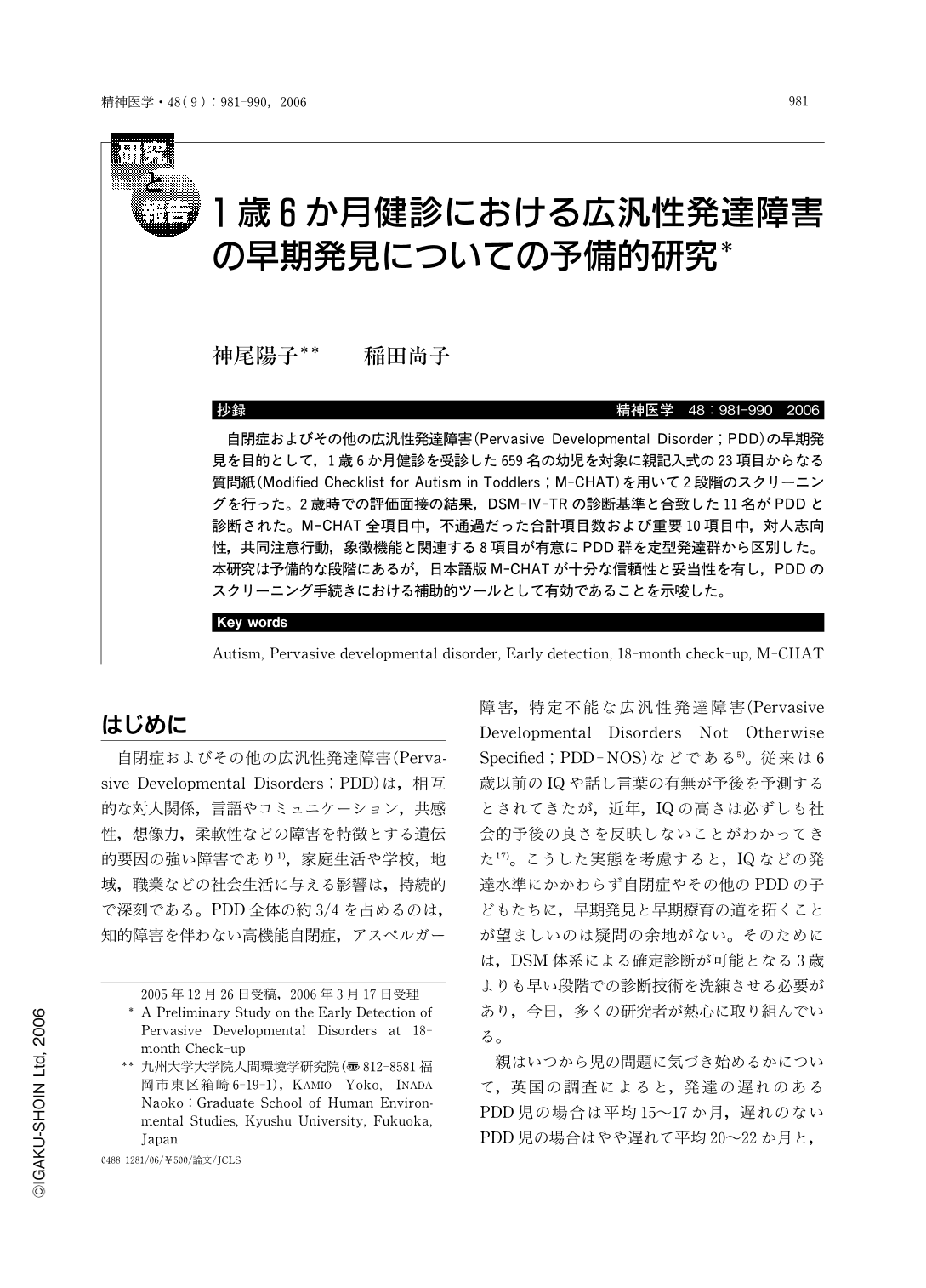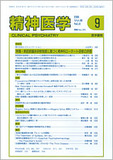Japanese
English
- 有料閲覧
- Abstract 文献概要
- 1ページ目 Look Inside
- 参考文献 Reference
- サイト内被引用 Cited by
抄録
自閉症およびその他の広汎性発達障害(Pervasive Developmental Disorder;PDD)の早期発見を目的として,1歳6か月健診を受診した659名の幼児を対象に親記入式の23項目からなる質問紙(Modified Checklist for Autism in Toddlers;M-CHAT)を用いて2段階のスクリーニングを行った。2歳時での評価面接の結果,DSM-IV-TRの診断基準と合致した11名がPDDと診断された。M-CHAT全項目中,不通過だった合計項目数および重要10項目中,対人志向性,共同注意行動,象徴機能と関連する8項目が有意にPDD群を定型発達群から区別した。本研究は予備的な段階にあるが,日本語版M-CHATが十分な信頼性と妥当性を有し,PDDのスクリーニング手続きにおける補助的ツールとして有効であることを示唆した。
Objective:We aimed to determine whether the Japanese version of the Modified Checklist for Autism in Toddlers (M-CHAT) could identify Japanese children with PDD (Pervasive Developmental Disorders) at 18 months of age. Methods:A prospective cohort study was conducted on 659 children. The follow-up methods included two-stage screening and developmental evaluations with screen-positive children and their parents. Results:M-CHAT identified, as PDD, eleven children with PDD and four children without PDD but with developmental problems at 18 months of age. Children with PDD were significantly differentiated from typically developing children by the total number of failed items among the M-CHAT 23 items and failure on an item relating to social interest, imitation, joint attention, pretend play, and language. Conclusion:This preliminary study demonstrated that a 2-stage screening system using the Japanese version of M-CHAT can offer useful early detection of PDD at the age of 18 months.

Copyright © 2006, Igaku-Shoin Ltd. All rights reserved.


